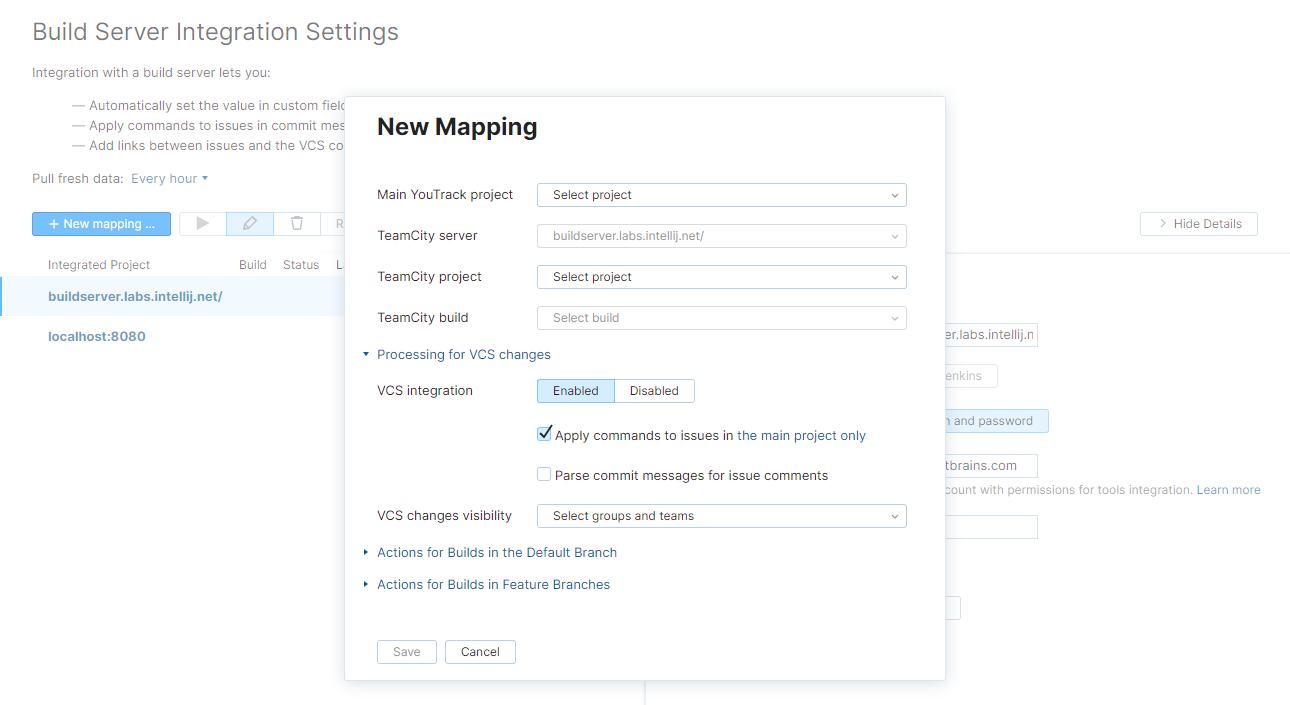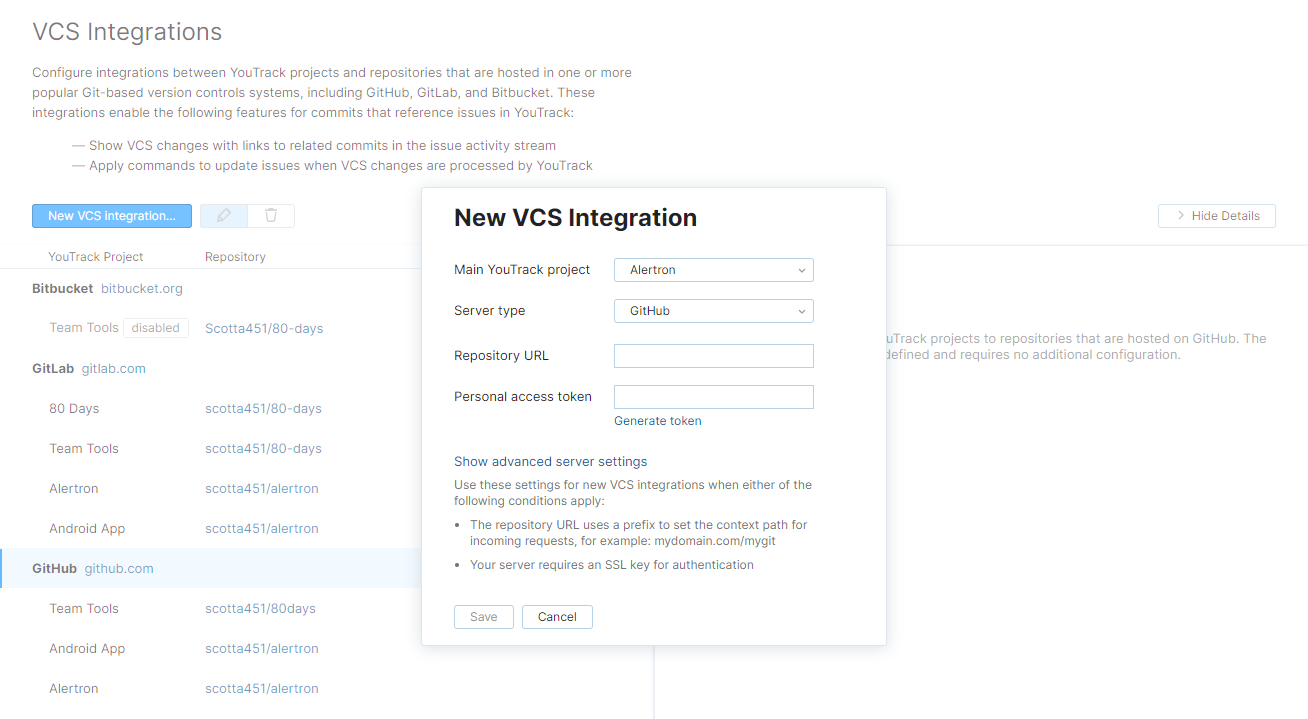

The link is formed according to the pattern that is set for the Issues url. With this configuration, any reference that is recognized as an issue in YouTrack is set as a link. Don't attempt to add the project name or ID to the URL.Įnter your base URL, followed by issue/:id.Ĭlick the Test settings and save changes button. YouTrack issues aren't accessible from URLs that end in a project name. Use this setting to indicate which YouTrack service you've integrated with.Įnter the base URL for your YouTrack service.įor YouTrack Cloud instances hosted on, your base URL includes the trailing /youtrack. Specify values for the following settings:Įnter any value. In the Project services section of the page, select YouTrack To enable the YouTrack Integration:Īccess the project that you want to integrate with in GitLab.įrom the Settings menu, select Integrations. To learn more about this integration, refer to the GitLab Docs. Issue prefixes that begin with lowercase letters or numeric values are not recognized. The integration only recognizes issue prefixes that begin with an uppercase letter. This functionality is supported in GitLab versions 11.9.0 and later.

This formats references to YouTrack issues in commit messages as links to the target issues in YouTrack. The first thing you should do is enable the YouTrack integration in GitLab. For details, see SSL Certificates.Įnable the YouTrack Integration in GitLab This operation is only available to users with Low-level Admin Read and Low-level Admin Write permissions. For security, use this option only when both YouTrack and your GitLab server run on a private computer network. If the certificate for your server is self-signed, you need to import the certificate and public key to establish a secure connection. You should be able to connect to the server without importing its SSL certificate. If your GitLab server has a valid certificate that is signed by a well-known certificate authority (CA), the JVM vendor may have already added the root (CA) certificate to the certificate store. If you're integrating with a GitLab CE or GitLab EE installation and want to establish a secure (HTTPS) connection with the server, you may need to import the SSL certificate for your GitLab server into YouTrack. You can either use an account that has at least Master or Owner access level in the project or a GitLab administrator account. This is the user account whose private token is used for authentication. The account that you use to connect to GitLab has access to the GitLab project that you want to manage with this integration. Specifically, you need to make sure that your network doesn't block connections between your VCS server and YouTrack.

YouTrack is accessible to inbound connections. For more information, see GitLab Integration. As a project administrator, you can set up this integration on a per-project basis.Īn administrator can enable and manage the GitHub integration for any project in YouTrack. When you enable and configure the GitHub integration, you define mappings between a YouTrack project and a GitHub repository. For more information, see Link Issues in VCS Commits. For details, see Pull Requests.Īdd links to YouTrack issues in commit messages or branch names. For more information, see Commits.ĭisplay the status of pull (merge) requests directly in the activity stream of any issue that is referenced in the title or description of the pull request.

Track commits that are related to specific issues in the activity stream for each issue. For more information, see Apply Commands in VCS Commits. Follow the instructions on this page to integrate your project with VCS repositories that are hosted on, self-hosted GitLab Community Edition (CE), or self-hosted GitLab Enterprise Edition (EE) server.Ī GitLab integration enables the following features in YouTrack:Īpply commands to YouTrack issues in commit messages.


 0 kommentar(er)
0 kommentar(er)
